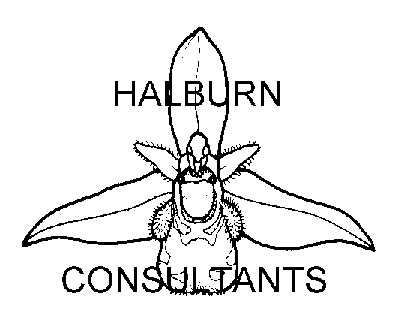|
THE BRITISH BAT FAUNA
The world has approximately 1000 species of bats
and of these only 30 are found in Europe, with just 17 species listed
in the UK.
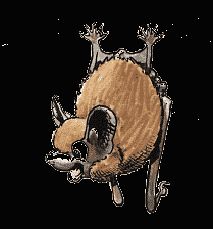
Bats are the only mammals that are capable of true flight. Their diet
varies, but all bats found in this country are insect eaters. Bats are
very social creatures living in colonies and have developed a form of
sonar that enables them to hunt their prey at night by sound.

They have a complex metabolism that enables them to hibernate over
winter in a state of torpor. Some individuals can live up to 30 years,
and they all very much depend on secure winter hibernation sites and
summer roosts together with undisturbed feeding areas in order to
survive
.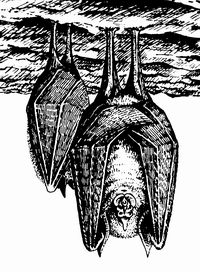
Many bats live in buildings,
tunnels and other man-made structures. Others favour trees or natural
features such as caves as a place to roost, hibernate or raise their
young.
It is perhaps because of their
unusual characteristics and the fact that they generally go about
unseen that they are subject to the oddest of myths (most untrue).
Human activity has been the prime cause of the decline in the British
bat population. Bats cause no damage in any roost site and have few
natural predators.
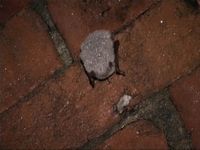
Hibernating Daubenton's Bat : Photo D. King
|
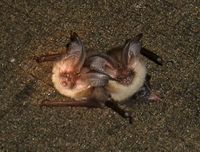
Brown Long-eared Bats : Photo
D. King
PRESENT BRITISH BAT SPECIES
Common Pipistrelle
Soprano Pipistrelle
Nathusius' Pipistrelle
Brown Long-eared
Grey Long-eared
Noctule
Serotine
Leisler's
Daubenton's
Natterer's
Whiskered
Brandt's
Alcothoe
Bechstien's
Greater Mouse-eared
Barbastelle
Greater Horse-shoe
Lesser Horse-shoe
BAT ROOSTS AND THE LAW
The Wildlife &
Countryside Act 1981, as amended and incorporated in the Countryside
& Rights of Way Act 2000 makes it an offence to recklessly
damage, destroy or even obstruct access to any place that a bat uses
for shelter unless Natural England has been consulted and had time to
advise. This does not mean that work will be prevented but advice will
be given on ensuring compliance with the law.
|
10 BAT FACTS
Even though public awareness is changing, many
people are still uncertain what to believe about bats. Here are 10
facts:
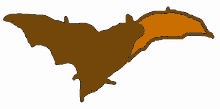
- Bats are the only truly flying mammals. They
have fur and give birth to live young, as do all mammals.
- British bats eat only insects.
- Female bats gather in "maternity colonies" in
summer to give birth and to rear their young.
- Bats usually only have one baby each year.
- Bats are not blind but they use a
sophisticated echolocation systems to navigate and feed in the dark.
- Bats do not fly in your hair!
- Bats are clean animals and groom frequently.
- Sixteen species breed in England - one third
of our land mammal species. Most of these species have been found in
Sussex
- The Pipistrelle, our commonest bat, weighs
about 5g (10 paper clips). Even so, it can eat around 3000 midges each
night.
- The Noctule, our largest bat, weighs about 30g
(the weight of 3 £1.00 coins) and it has a wingspan of about 35 cm.
(14ins.).
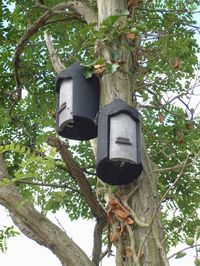
'Woodcrete' Bat Boxes : Photo M. Love
|
